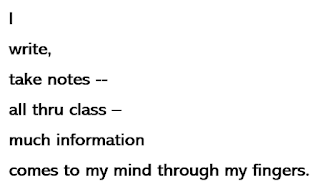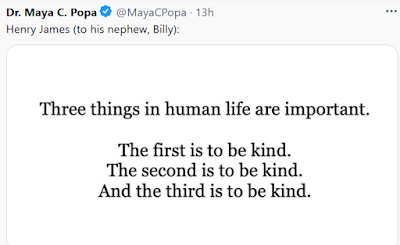A poetry event that I often enjoy is the posting by the Academy of American Poets of a poem-a-day -- today's poem is found here and information about the posting is found here at Poets.org. my background in mathematics helped me to be especially pleased early this month (on 2/2) when the daily poem (written by poet and artist Brad Walrond) was entitled "Calculus I, II, III" -- and if offers reflection on different levels of learning. Below I offer a few lines from the poem; the complete poem is available at this link.
from Calculus I, II, and III by Brad Walrond
. . . this calculus
—how one body
relates to another—
that disturbs all the peace
is the same as learning
their one two threes . . .
Copyright © 2024 by Brad Walrond. Read more here.





















